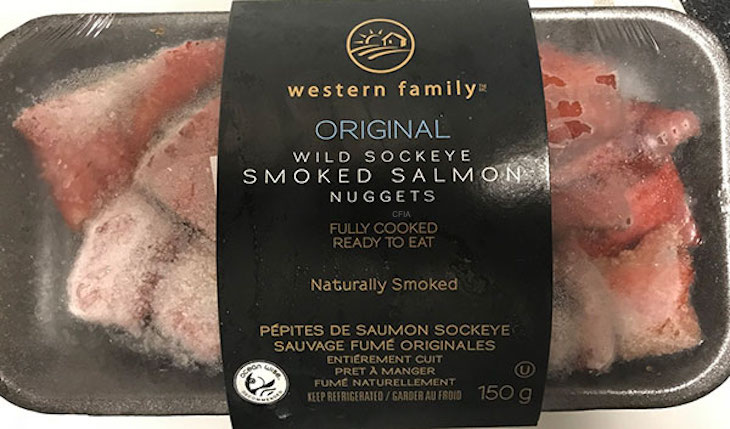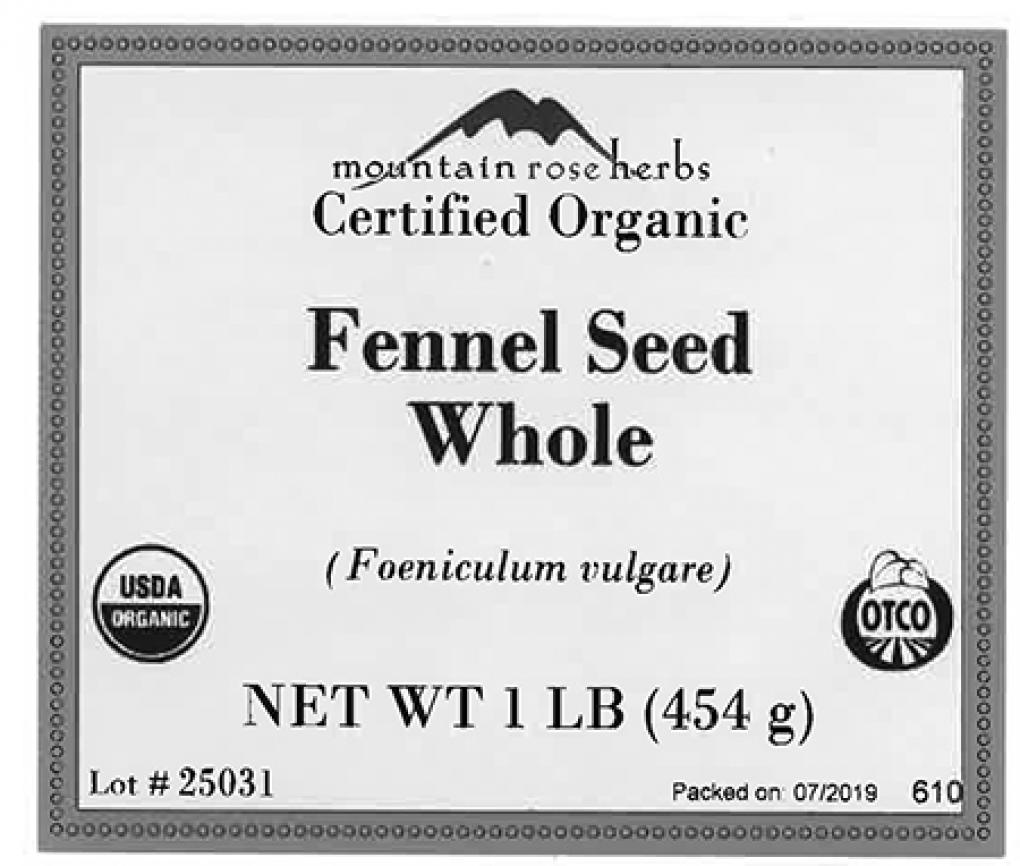CFIA announced that Delta Pacific Seafood Ltd. recalls Western Family brand Original Wild Sockeye Smoked Salmon Nuggets due to possible Listeria monocytogenes contamination. No illnesses have been reported to date in connection with the recall. The products were sold in Alberta, British Columbia, and may have been sold nationally. The recalled product is Western Family Original Wild Sockeye Smoked Salmon Nuggets sold in 150-gram packages.@ http://inspection.gc.ca/about-the-cfia/newsroom/food-recall-warnings/complete-listing/2019-07-25/eng/1564110911002/1564110913438
ruth
Delta Pacific Seafood Ltd. is recalling Western Family brand Original Wild Sockeye Smoked Salmon Nuggets from the marketplace due to possible Listeria monocytogenes contamination.
ruth
The FDA, CDC, and state and local partners are investigating a multistate outbreak of 132 illnesses of Cyclospora illnesses. Of the 132 people with Cyclospora infections, four have been hospitalized. The FDA announced that the outbreak is probably linked to fresh basil exported by Siga Logistics de RL de CV located in Morelos, Mexico. The FDA has requested a voluntary recall of the basil exported and the firm has agreed. The CDC’s analysis of epidemiologic information indicates that contaminated fresh basil is the likely cause of the illnesses. The FDA reported the restaurants liked to the illnesses are in Florida, Minnesota, N.Y., and Ohio. Outbreak cases were found in Connecticut, Florida, Georgia, Iowa, Massachusetts, Minnesota, New York, Ohio, Rhode Island, South Carolina, and Wisconsin. The FDA has increased import screening on basil and will continue to investigate the cause and source of the outbreak as well as the distribution of products. @ https://www.fda.gov/food/outbreaks-foodborne-illness/outbreak-investigation-cyclospora-illnesses-linked-imported-fresh-basil-july-2019?utm_campaign=Outbreak%3A%20Cyclospora%20in%20Fresh%20Basil%20from%20Mexico_07252019&utm_medium=email&utm_source=Eloqua
Consumers warned to not eat fresh basil from Mexican exporter
ruth
The FDA announced on its website that Mountain Rose Herbs (MRH) of Eugene, Oregon recalled Fennel Seed Whole, Lot #25031, because they have the potential to be contaminated with Salmonella. The recalled Fennel Seed Whole was sold directly to customers who ordered from mountainroseherbs.com website, purchased at the company’s retail shop in Eugene, Oregon, or placed mail orders by phone or fax. The affected product was also distributed to vitamin and health food stores in AZ, CA, CO, FL, IL, MA, MI, MN, MT, NC, NE, NM, NY, OH, OR, PA, SC, TN, TX, UT, VA, VT, WA, WV and to one consignee in Canada. Product has been sold and distributed between April 2019 and up to July 18, 2019. No illnesses have been reported to date. The potential for contamination was noted after testing by the company revealed the presence of Salmonella in a portion of its active inventory. Production of the product has been suspended while MRH continues our investigation. @ https://www.fda.gov/safety/recalls-market-withdrawals-safety-alerts/mountain-rose-herbs-recalls-fennel-seed-whole-because-possible-health-risk
Mountain Rose Herbs (MRH) of Eugene, Oregon is recalling all sizes ranging from 4 oz. to 50 lbs. of its Fennel Seed Whole, Lot #25031, because they have the potential to be contaminated with Salmonella.
Since May 1, 2019, there have been more than 100 reports of Cyclospora infection cases in Massachusetts, when, over the past three years, the Massachusetts Department of Public Health (DPH) has received between 18 and 33 reported cases. Most cases this year have occurred in greater Boston area, but infections have been reported in residents across the Commonwealth. Other states have also reported increases in the number of cyclosporiasis cases; the cause of the outbreak is not yet known. In the past, most cases of cyclosporiasis were associated with travel abroad. However, this year only a small number of the recent Massachusetts cases have been tied to international travel. Historically, outbreaks of this illness in the US and Canada have been linked to imported fresh produce including Guatemalan raspberries and snow peas (2000 and 2004); Thai basil (2001); Mexican bagged salad mix (2013); and prepackaged commercial fresh vegetable trays (2018). DPH is working with local Boards of Health, other states, the U.S. Centers for Disease Control and Prevention and the U.S. Food and Drug Administration to trace the cause of the outbreak. @ https://blog.usfoodsafety.com/2019/07/23/100-reports-of-cyclospora-in-massachusetts/
BOSTON — The Massachusetts Department of Public Health (DPH) is urging residents to practice safe food handling practices following an increase in reported infections of Cyclospora, a foodborne ill…




